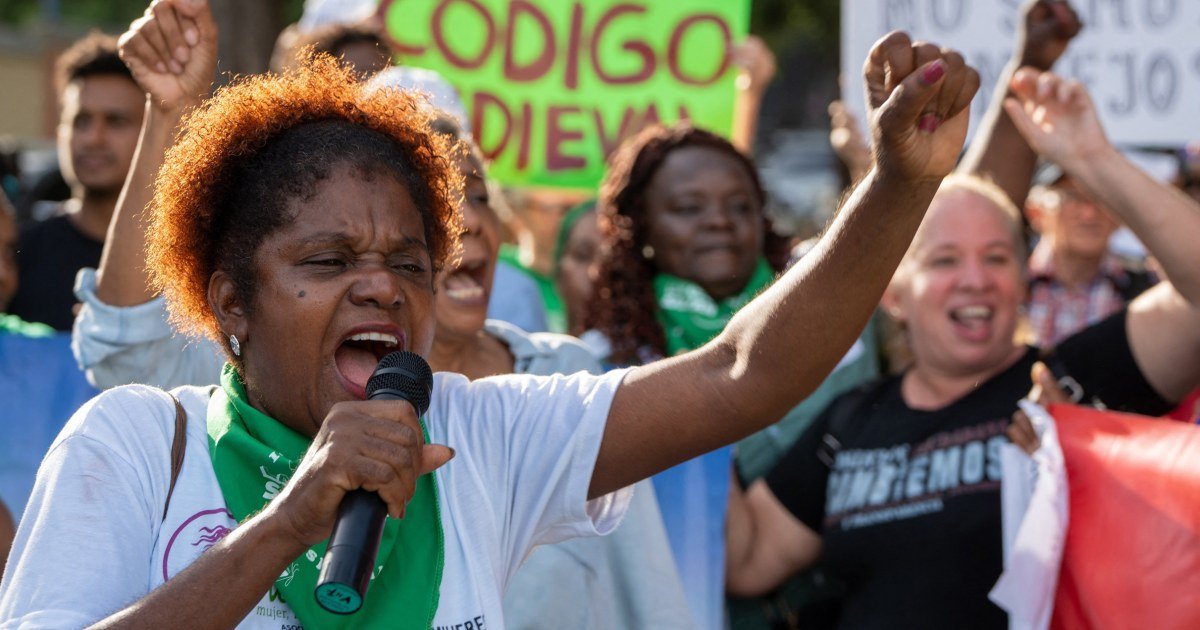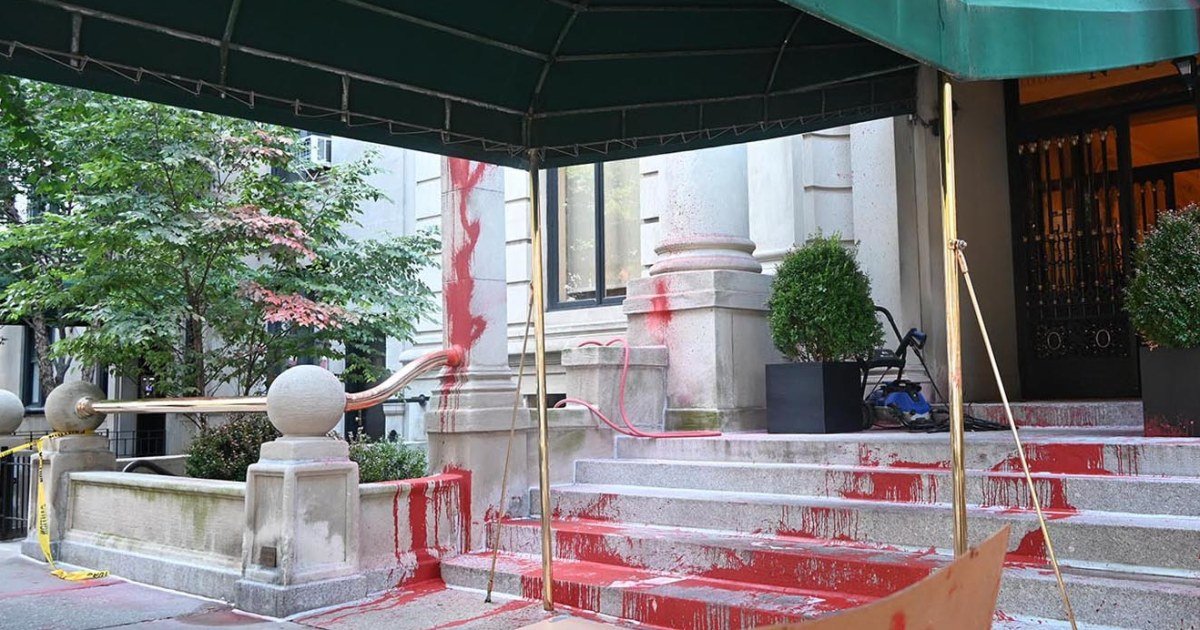With a birthday cake in his hand, the well -known comedian of the Dominican Republic Carlos Sánchez told an Instagram publication how Winifer Núñez Blessed, 25, died in 2021 after the doctors on the island refused to end their high -risk pregnancy due to the total abortion prohibition of the country.
Núñez Blessed left a husband and a little daughter. In the video, Sánchez said that the cake is not for his birthday, but to mark another year in which he is asking that women do not die due to a law that prevents doctors from saving his life.
Sanchez told NBC News that he felt forced to use his platform to create awareness because “it is a barbarism that a mother currently has to put her life at risk by a risky pregnancy that could end but the law prohibits doctors who do it.”
Sanchez is among many artists and activists of the Dominican Republic that participates in a social networks campaign to promote to amend a recently approved Criminal Code that maintains a complete abortion prohibition. Many artists have used their platforms to tell the stories of Dominican women who have lost their lives due to pregnancy -related conditions.
On Instagram, singer and actress Techy Fatule tells the story of Damaris Mejia, who went to three different hospitals when she began to feel ill and had a high fever. According to Fatule, medical staff did not know what to do with high -risk pregnancy of Mejia. She was sent home with analgesics and died that night. Fatule says that doctors could not save her due to the ban and ends with words: “Life is full of exceptions.”
The Dominican Republic is a conservative country that presents the Bible in its flag. The country signed a concordat, or agreement, with the Vatican in 1954 converting Catholicism into the state religion, although the Constitution allows freedom of worship.
The Catholic Church of the country supports the prohibition of abortion, as well as evangelical groups. But Dominican Christian Alliance, a group formed in 2017 by women from different Christian denominations, is pressing so that the Criminal Code includes what is known in the region as the “three causes”, or three causes or circumstances in which pregnancies should be allowed: when the life of women is at risk, in the case of rape or incestation, and when fetal malformations are incompatible with life. The “three causes” are used in other Latin American countries that have facilitated total abortion prohibitions.
Dominican Christian Alliance has been associated with artists to share stories.
So far this year, there have been 100 maternal deaths documented in the Dominican Republic. Natalia Mármol, of the life and rights of the coalition for women, believes that those lives could have been saved if abortions were legal.
“This is a struggle to ensure minimal protection for life, health and dignity for girls and women,” said Marble. “We are asking for minimal protections, so women do not die in a hospital bed. Therefore, a 13 or 15 -year -old girl is not obliged to continue with a pregnancy that is the product of a rape. And thus a woman can decide when a pregnancy is not viable.”
The previous Criminal Code of the Dominican Republic had been in force since 1884, and efforts to reform it failed for decades. The new Criminal Code was approved by legislators and signed by President Luis Abinader.
Abinader had previously expressed support to make exceptions to the prohibition of abortion, but after winning re -election he did not press for the changes.
After the vote, Abinader said that the Criminal Code, which covers many types of crimes, “is not the ideal, but it is the best possible, since, among other things, it replaces the legislation that dates back to 1884”.
Marble said the new Criminal Code includes points for which the group advocated, as the classification of femicide, the intentional murder of a woman or girl, as well as an increase in the severity of punishment for sexual aggression.
She said the new Criminal Code will not enter into force until August 2026 and there is time to modify the law to include the three exceptions.
The coalition for the life and rights of women and other groups has pressed for years to include the three exceptions, even erecting a camp in 2021 in front of the National Palace to pressure Parliament.
In the Dominican Republic, women face up to two years in prison for having an abortion and doctors and midwives can receive five to 20 years to finish a pregnancy.
Four other Latin American countries and the Caribbean maintain a total prohibition of abortion, including Haiti, Nicaragua and El Salvador. Most of Latin America and the Caribbean allows abortion in limited cases.
Caribbean-pop singer and composer Isabel de Dios said she has been active in the feminist movement throughout her adulthood, often participating in protests. His first song, called “Colonized” or “Colonized”, talks about how society expects people to remain within the established roles and turn a blind eye to many situations.
He called the “Crazy” Criminal Code, “dictatorial” and “feudal.”
“What kind of society are we building?” She said.








